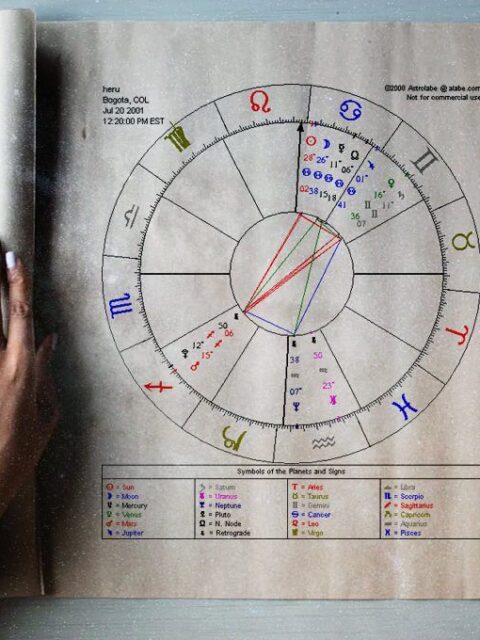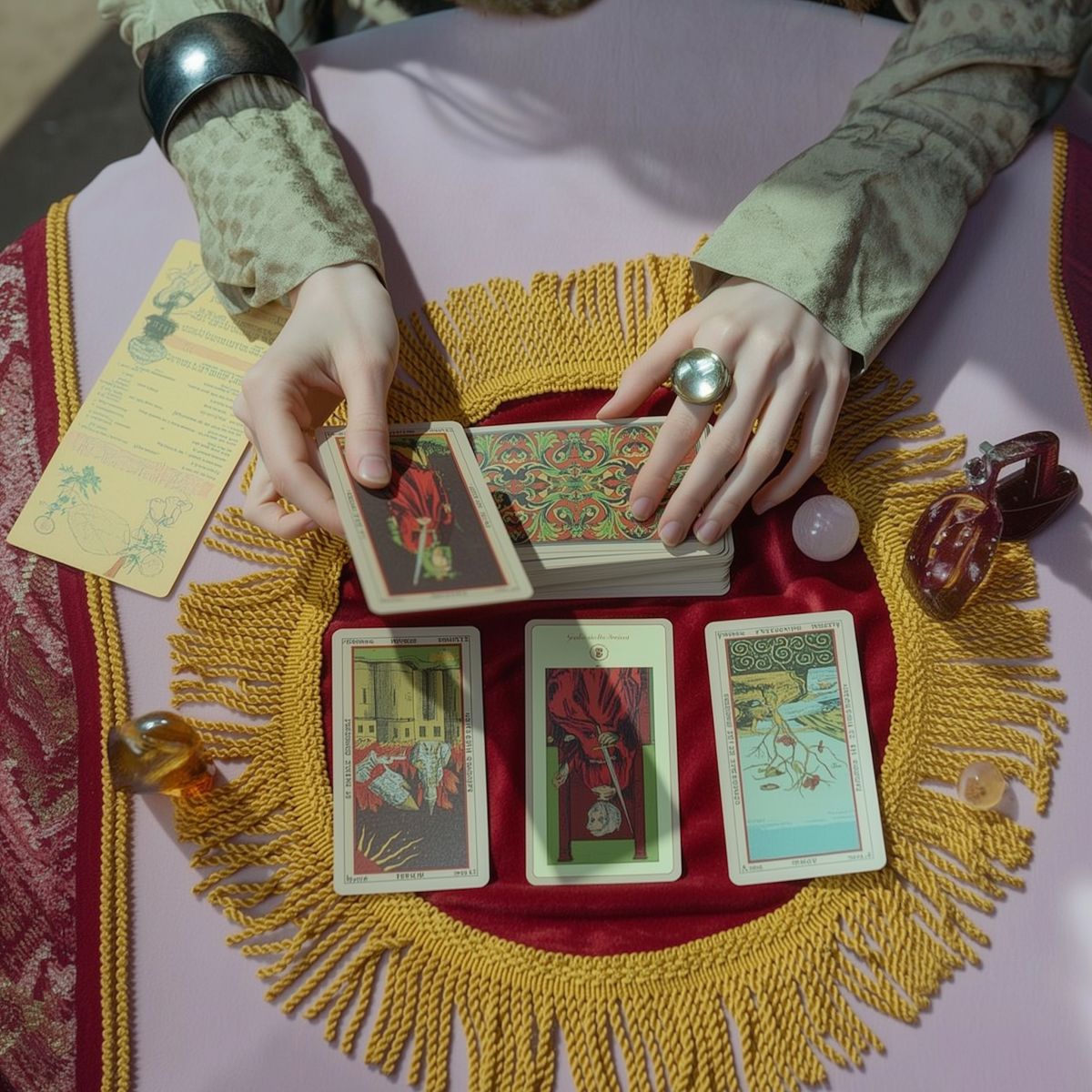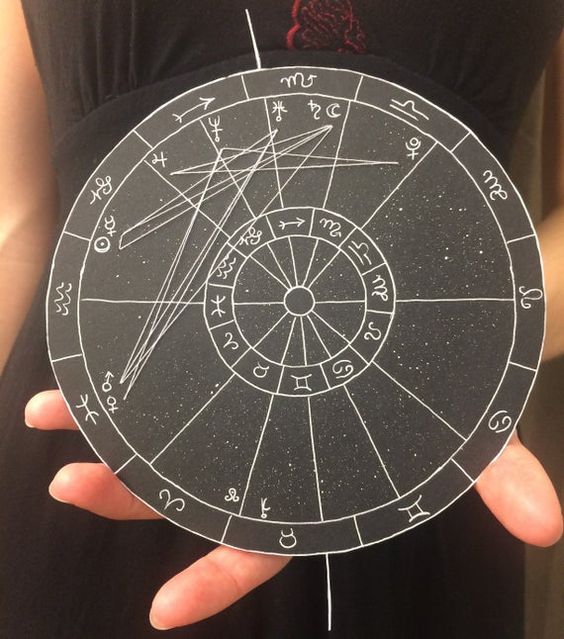
Liz Greene’s Perspective on Pluto in the 3rd House
 Pluto in astrology symbolizes deep transformation, power, the unconscious and the cycle of death and rebirth. When placed in the 3rd house (which governs communication, learning, siblings, and the immediate environment), Pluto’s intense energy manifests through one’s mind, speech, and early life experiences. Psychological astrologer Liz Greene often depicts Pluto as an underworld force – associated with Hades, Kali, or Lucifer – that compels growth by breaking down old forms to create new ones. In the 3rd house, this “Plutonian” force dives into the realm of the intellect and everyday interactions. Below, we explore Liz Greene’s key insights on Pluto in the 3rd house, supported by excerpts from her works and related articles, and compare them with interpretations from other astrologers.
Pluto in astrology symbolizes deep transformation, power, the unconscious and the cycle of death and rebirth. When placed in the 3rd house (which governs communication, learning, siblings, and the immediate environment), Pluto’s intense energy manifests through one’s mind, speech, and early life experiences. Psychological astrologer Liz Greene often depicts Pluto as an underworld force – associated with Hades, Kali, or Lucifer – that compels growth by breaking down old forms to create new ones. In the 3rd house, this “Plutonian” force dives into the realm of the intellect and everyday interactions. Below, we explore Liz Greene’s key insights on Pluto in the 3rd house, supported by excerpts from her works and related articles, and compare them with interpretations from other astrologers.
Liz Greene approaches Pluto from a depth psychology angle, emphasizing its role in exposing what is hidden and catalyzing profound inner change. She notes that Pluto cannot be pinned to a single meaning or myth; instead, it resonates with a family of archetypes – from Lucifer the dark angel to the Fates to the Great Mother – reflecting how we experience its energy. Pluto represents an “intelligent life in substance itself,” a life-force in nature that survives by continual permutation, breaking down, and regeneration. We experience Pluto variously as destructive, fated, or life enhancing, depending on our perspective.
In a natal chart, Pluto’s house shows where this underworld journey occurs on a personal level. Greene has written that the outer planets (like Pluto) may embody the collective unconscious in our charts, yet through experiences they become highly personal. For example, “if you have someone with Pluto in the seventh house…issues of fear, power, transformation…will be experienced via the partner”. By the same token, Pluto in the 3rd house suggests that themes of power, secrecy, fear, and transformation will emerge through 3rd house arenas – communication, thinking patterns, early education, and sibling relationships. The “entry into the underworld” for such an individual may come through what they learn, speak, or hear in their immediate environment (for instance, a traumatic or taboo secret involving a sibling or something learned in youth). In other words, everyday words and interactions can plunge them into Plutonian depths.
Greene’s interpretation (often given in seminars and writings) highlights that a 3rd-house Pluto person is not inclined to superficial small-talk. They instinctively seek the deeper subtext in any conversation. On commenter summarizes Greene’s view noted that Pluto in the 3rd can confer “a deep sense of who [one] is” and a drive to relate every experience to an underlying truth, rather than accepting surface reality. Such individuals may feel almost compelled to probe beyond polite conversations – sometimes to the discomfort of others. Honesty (even if brutal) and penetrating insight characterize their communication. A writer, interpreting Greene’s work, remarked that “Pluto in the third house is not afraid to talk about dark stuff” – mirroring Greene’s idea that Plutonian people often confront the shadow in dialogue.
Another theme Liz Greene stresses is how early life and family dynamics set the stage for Pluto’s 3rd-house expression. The 3rd house covers childhood learning and sibling relationships, and difficult Plutonian scenarios here can imprint powerful psychological patterns. For instance, one case study (noted by another astrologer in a Pluto workshop) described a woman with Pluto in the 3rd who experienced a traumatic childhood incident with a sibling – her sister threatened to “sell” her – leaving lasting fear. Such an extreme (and darkly symbolic) event illustrates Pluto’s potential for intense, formative experiences via siblings or early peer interactions. Greene often interprets these kinds of experiences as fodder for later psychological insight: the individual is pushed to question “normal” reality and seek deeper understanding as a coping mechanism.
It’s also worth noting that Liz Greene delivered an entire webinar series on Pluto in 2016, which delved into mythic underworld themes and Pluto’s effect in the natal chart and by transit. In those lectures, she emphasizes that demoting Pluto astronomically “might be appropriate on paper, but Pluto isn’t paying attention to having his potency reduced”. In a 3rd house context, this suggests that even seemingly mundane daily communications (3rd house) can carry enormous psychological weight. A casual comment or school lesson might trigger a Plutonian soul-searching or obsession for someone with this placement. Greene’s psychological advice for Pluto in any house is to become conscious of these underworld forces: rather than being subconsciously driven by fear or compulsion, one must face the darkness and transform it. Thus, with Pluto in the 3rd, the task is often to transform one’s mindset – to shed old mental “shells” and be reborn with a new perspective, much like a snake shedding skin (an image Greene has used for Pluto’s transformative process.
In summary, Liz Greene’s interpretation of Pluto in the 3rd house can be outlined as follows:
Deep Curiosity & Penetrating Mind: An “irrepressible curiosity” that drives the person to probe behind conventional facts or polite conversation. They seek truth in communication, conveying the idea that “knowledge is power.” Shallow or trivial exchanges feel empty to them, and they may unconsciously steer discussions to more profound or taboo topics. This matches Greene’s depiction of Pluto as the force that “will go through permutations…break down forms…generate new forms” – here, outdated ideas are the forms to be broken down. The individual’s mind continually metamorphoses, shedding old beliefs for new ones as they uncover hidden information.
Intensity in Communication: The way they speak or write carries unusual intensity or psychological weight. They might possess “hypnotic, deliberate verbal expression,” as one astrologer noted. Greene might connect this to Pluto’s archetype of Orpheus or Hermes – a mediator who can move others with words and even venture into the metaphorical underworld (difficult conversations or secrets) and return. Secrets and taboos often swirl around their communications. They may have a talent for ferreting out secrets in others (a kind of natural psychologist or detective of the mind). This aligns with Greene’s view of Pluto as ruling what is hidden and repressed in the psyche.
Early Life and Siblings: Early schooling or sibling relationships could have been fraught with power struggles, secrecy, or intense emotional material. The child may have sensed “undercurrents” in the family’s communications – e.g. unspoken secrets or traumas – which profoundly shaped their thinking. Liz Greene discusses how family complexes influence one’s chart expression. A 3rd-house Pluto child might either keep silent (if conversation in the household felt unsafe) or become the one who exposes truths that others avoid. There can be an almost fated quality to encounters with siblings or early peers, as though those relationships force the individual to confront Pluto’s themes (jealousy, betrayal, loyalty, etc.) early on. One source, expanding on Greene’s ideas, mentions that “one of the siblings may be difficult or cause trouble; thus, Pluto teaches development and consciousness in that way. Pluto never gives anything for free.” – implying that challenges with siblings under Pluto ultimately spur psychological growth.
Transforming the Mind: Ultimately, Greene framed Pluto in the 3rd as an invitation to transform one’s mental patterns. The individual may need to overcome compulsive thinking, obsessive worries, or irrational fears around communication (for example, fear of speaking out or, conversely, fear of superficiality). By facing these fears – perhaps through therapy, journaling, or deep conversations (3rd house outlets) – they undergo a kind of intellectual rebirth. In Greene’s words, “we become aware” of the Pluto archetype and can then “use or abuse it in a conscious way”, rather than being blindly driven. A healed Pluto-in-3rd individual might become a powerful healer through words, much like a therapist, writer, or speaker who helps others confront hidden truths. In fact, Greene notes Pluto’s connection with the collective psyche; someone with this placement could tap into collective issues (e.g. writing about cultural taboos or revealing corruption) as part of their own catharsis.
It’s important to mention that direct published quotes from Liz Greene specifically about “Pluto in the 3rd house” are scarce, as her writings often discuss Pluto in broader terms or through chart examples. However, the themes above distill how her Pluto philosophy applies to the 3rd house realm. For more on her approach, one can refer to her Pluto webinars or her co-founded forum on Astrodienst, where she and others discuss outer planets in houses in depth. Greene’s rich, multi-faceted view ensures that Pluto in the 3rd is not seen in a simplistic way (e.g. “harsh words” or “smart but cynical”) but rather as a complex psychological journey involving intellect and communication.
Comparative Interpretations from Other Astrologers
To place Liz Greene’s insights in context, it’s helpful to compare other astrologers’ interpretations of Pluto in the third house. Many speak of similar themes – intense mental focus, transformative learning experiences, and communication as a vehicle for power or healing – though each astrologer highlights different facets:
Stephen Arroyo (Psychological/Experiential): Arroyo describes Pluto in the 3rd as indicating “a person who is compulsively thorough in all matters of communication.” There is an almost obsessive need to ensure ideas are clearly conveyed, which “can manifest as a rather irritable way of speaking with others” if the person feels misunderstood. However, when transformed to a higher level, this same influence gives “a creative ability to get to the depths of human interaction.” In other words, these individuals excel at piercing superficial facades to speak directly to what matters. Arroyo also notes they often have great energy for research and even healing – sometimes literally “healing hands” – implying that their intellectual depth can be applied to fields like science, psychology, or energy healing. This aligns with Greene’s view of harnessing Pluto for positive use once its lessons are integrated.
Jeff Green (Evolutionary Astrology): Jeff Green, founder of Evolutionary Astrology, frames Pluto in the 3rd in terms of soul history and evolution. He writes that “Individuals with Pluto in the Third House have experienced the evolutionary necessity to project themselves into the physical environment in order to collect information, facts and data.” In prior lives (or earlier in this life), they had to actively seek knowledge as a way to grow. Green explains that this results in a strong emphasis on mind and intellect – the person has been developing their intellectual abilities as a means of understanding themselves and their world. Emotional security for them becomes tied to “logically ordering their existential existence,” knowing their environment through naming and classifying it.
However, this can create a problem: the more information they gather, the more new facts may undermine their old beliefs, threatening their security. Green notes they can become simultaneously attracted and repelled by new information – craving knowledge yet fearing it will invalidate what they think they know. The evolutionary challenge, then, is to keep expanding the mind without clinging to a rigid viewpoint. We see here a strong parallel to themes Greene touches on (needing to shed old mental “shells”). Green’s work adds the idea of past-life causes: perhaps in past incarnations these individuals were limited in education or punished for speaking out, hence in this life they are driven to intellectually empower themselves. Ultimately, Green suggests Pluto in 3rd people seek a “logical framework” to explain their world, and part of their growth is to later seek deeper, metaphysical meaning beyond the purely logical (since he notes they focus on empirical facts first, often delaying or avoiding the metaphysical until later).
Howard Sasportas (The Twelve Houses): Sasportas also discussed Pluto in each house in practical psychological terms. He observed that with Pluto here, communication can become a battleground – these people might unconsciously try to dominate conversations or could be overly defensive about their ideas. A quote attributed to Sasportas notes: “Both men and women with this placement can antagonize people and make many enemies” if operating from Pluto’s shadow. For example, they may come across as know-it-alls or use a “bitchy, complaining demeanour” to manipulate others when they feel unheard. This is the negative potential. However, Sasportas emphasized that “fortunately, not everyone with Pluto in the third house takes the negative road. The vast majority…have periodic bouts with the problems just described, but are able to transcend [them]…and emerge…as strong individuals.”
In fact, Pluto’s positive expression often shows up early – perhaps as a child who is “fascinated by the mysteries of the world” and constantly asks “Why?”. This early intellectual passion can lead them down various intriguing paths in life, giving an almost scientific or investigative bent to their mindset. Sasportas notes that such a child displays “an astounding knowledge of how things work” from an early age. In adulthood, this translates to a remarkably analytical mind. They seek the “limits or boundaries of perception,” pushing thought to its edge. Intuition blends with analysis – they often get flashes of insight that leap beyond normal logic, a gift of Pluto’s penetrating depth. Sasportas’ view complements Greene’s by highlighting the spectrum of Pluto in 3rd: from shadow (argumentative, mentally controlling) to evolved (curious, insightful, mentally powerful).
Also, Sasportas underscores the role of the family. If the family encouraged the child’s curiosity rather than stifling it, the person is far more likely to use their Plutonian mind positively. With support, they don’t see questioning as a “moral infringement” but rather a path to truth – yielding a worldview that life is ultimately meaningful (rather than cruel or chaotic, which is the fatalistic Pluto view). This observation dovetails with Greene’s notion that a “friendly universe” belief can emerge when Pluto’s lessons are integrated, versus a paranoid outlook when they are not.
Donna Cunningham (Healing Pluto Problems): Cunningham groups Pluto in the 3rd with Pluto-Mercury aspects, noting that such individuals often face Plutonian mental challenges and opportunities. She remarks that an afflicted Pluto here can create tendencies like obsessive thoughts or sarcasm used as a defense, but also suggests these people “learn to heal through words.” In Healing Pluto Problems, she advises that writing or talk therapy can be an outlet for Pluto-in-Third folks to purge intense feelings safely. One indirect reference notes that in conversation, transformation takes place: “With Pluto in the third house, in this conversational process, you heal.” By diving into deep talks – perhaps discussing painful memories or profound subjects – the person experiences catharsis. Cunningham’s approach is very much in line with Greene’s therapeutic outlook, affirming that Pluto’s healing gift in the 3rd house is the ability to communicate in a way that sparks renewal (for self and others).
Community discussions often cite Liz Greene’s books and lectures; one user recalls Greene’s storytelling about Pluto, saying “you’ll end this lifetime much more knowledgeable about life” if you have Pluto in the 3rd – hard-won wisdom through trials of the mind. This aligns with the idea of Pluto as the ultimate teacher of reality’s depths in whichever house it resides.
Modern Astrologers use vivid interpretation comes. The mind is described as a “shadowy Pluto tunnel” – suggesting the journey of thought often takes them into darkness and back. According to this view, “knowledge is the ultimate power” for 3rd house Plutonians, and they have a “tremendously in-depth and calculative mind.” Moreover, “the deepest, most concealed secrets are transmitted through … speaking, writing, education, and unconscious telepathic exchange from the underworld.” This mirrors Greene’s mythic approach (Hermes as messenger from the underworld).
Astrologers also note a “cynical distrust and fear of the world at large” that can accompany this placement, along with hypersensitivity to lies or propaganda. These individuals may feel out of place in shallow social chatter, preferring meaningful dialogue. When they do engage, “they leave a potent cluster of energies wherever they have spoken,” and experience an almost magical or cathartic sensation as conversation “plunges them into the unknown oblivion.” This beautifully underscores Pluto’s transformative power through the 3rd house: each conversation can be an “underworld trip” that changes them a bit. Finally, astrologers highlight their talent for extracting secrets and even “soothing the disturbed through language”, acting as a healer for others by discussing painful topics.
To synthesize the comparative views, we can identify common threads about Pluto in the 3rd house:
Intense Curiosity and Mental Depth: All agree these people are deep thinkers or investigators. They must know the truth and often become walking encyclopedias of esoteric or hard-won knowledge. As one summary puts it, “intensely analytical minds characterize those with Pluto in the third house, enhancing their research capabilities and insight.” Knowledge is equated with survival or power.
Communication as Power: Speech and writing aren’t casual for Pluto-3rd individuals. Words can wound or heal, and they know this. They may have a powerful voice or writing style that influences others (“your communication…radiates power”. Choosing words carefully is important, as they tend to have lasting impact (for better or worse). Lying to these people is hard – they often detect deception intuitively. This matches Greene’s interpretation of Pluto conferring almost x-ray vision into motives.
Early Suppression or Trauma, Later Empowerment: Many interpretations mention difficult childhood experiences: e.g. feeling not allowed to speak, being bullied by siblings, or otherwise having one’s voice quashed in youth. This initial suppression often becomes the fuel for later mastery. They might accumulate knowledge to “prove themselves an intelligent human being” or talk obsessively to fill the childhood silence. If there were dark family secrets, they carry those psychologically and eventually seek to break the cycle by speaking truth. Greene’s focus on psychological patterns aligns with this – the compulsion to dig for answers often stems from early unmet needs or secrets.
Mental Crisis and Transformation: Because Pluto pushes extremes, these individuals can face mental crises – periods of obsessive fear, information overload, or breakdown of beliefs. One text warns that “gathering too much knowledge” without processing can lead to losing one’s footing (even “mental instability” in extreme cases) Yet, each crisis can lead to a breakthrough. They periodically “shed” old viewpoints and are reborn with a new outlook. This cyclical tearing down of thought-forms is essentially what Greene describes as Pluto’s endless cycle of death and rebirth applied to the mind’s constructs. Over time, Pluto in 3rd natives often develop a very independent mind, trusting their own perception above external dogma (they “prefer to be [their] own teacher” In Jungian terms, they individuate through intellect.
Relations with Siblings/Peers: Pluto here can indicate power dynamics with siblings or in the neighborhood. There might be intense bonds or rivalries, perhaps involving jealousy or protective secrecy. As Simona Rich notes, siblings might have “dark secrets or obsessions” and advises maintaining peace or distance to avoid destruction. Jeff Green’s work even implies prior-life threads in sibling relationships. In any case, siblings and close peers serve as catalysts: through them, Pluto’s lessons of trust, betrayal, or deep connection emerge. Greene has often mentioned that 3rd house (along with 4th) contributes to early complexes that later must be worked through.
In conclusion, Liz Greene’s interpretation of Pluto in the 3rd house sits well among these viewpoints, distinguished by her richly mythological and psychological framing. She encourages an individual with this placement to see their intense mind not as a curse but as a path to self-knowledge – much like Persephone’s journey to the underworld leading to her eventual queenship. Communication, for such a person, is never just idle chatter; it is a form of soul work.
Greene’s unique contribution is her ability to connect the personal struggles (like fearing to speak one’s truth or obsessively seeking answers) with larger mythic themes, thereby giving meaning to the Pluto in 3rd house experience. By facing the “dragons” in their mind – the fears of being wrong, the memories of being silenced, the temptation to manipulate with words – the individual can transmute shadow into wisdom. As one astrologer quipped, “You should end this lifetime by being much more knowledgeable about life” if you have Pluto in the 3rd – an outcome Liz Greene would certainly agree is the higher purpose of this placement.



















 Reflections on a Past Venus-Pluto Synastry Aspect
Reflections on a Past Venus-Pluto Synastry Aspect
 The Progressed Moon Aspects Pluto: Emotional Déjà Vu — Haven’t We Screamed Here Before?
The Progressed Moon Aspects Pluto: Emotional Déjà Vu — Haven’t We Screamed Here Before?
 Saturn in the 4th House: Security Is an Inside Job
Saturn in the 4th House: Security Is an Inside Job
 Mars in the 7th House: When Passion Picks a Partner
Mars in the 7th House: When Passion Picks a Partner
 Uranus Transits: 1st House: Winds of Change:
Uranus Transits: 1st House: Winds of Change:
 Venus Opposite Neptune Natal Aspect: Love Is the Ultimate Surrender
Venus Opposite Neptune Natal Aspect: Love Is the Ultimate Surrender
 Mars Conjunct Pluto Synastry
Mars Conjunct Pluto Synastry
 Composite Sun in the 8th House: Weather the Storm
Composite Sun in the 8th House: Weather the Storm
 Sun Square Pluto Natal Aspect: I Am Titanium
Sun Square Pluto Natal Aspect: I Am Titanium
 Sun Conjunct Neptune Synastry
Sun Conjunct Neptune Synastry
 Mars Opposite Pluto Natal Aspect: Live Passionately or Burn Silently
Mars Opposite Pluto Natal Aspect: Live Passionately or Burn Silently
 Sun-Pluto: Burning to Matter
Sun-Pluto: Burning to Matter
 Mars Trine Neptune Natal Aspect
Mars Trine Neptune Natal Aspect
 The Evolution of Sun Square Pluto
The Evolution of Sun Square Pluto
 The Saturn-Neptune Square in the Artist’s Psyche
The Saturn-Neptune Square in the Artist’s Psyche
 Astrology Degrees and Meaning
Astrology Degrees and Meaning
 Venus-Pluto Synastry: A Love So Powerful That It Might Just Kill Them
Venus-Pluto Synastry: A Love So Powerful That It Might Just Kill Them
 Charting Domestic Changes: Home and Family Moves
Charting Domestic Changes: Home and Family Moves
 Scorpio’s Cold Withdrawal
Scorpio’s Cold Withdrawal
 Mars in Aries: Your Passion Can Burn Both Ways
Mars in Aries: Your Passion Can Burn Both Ways